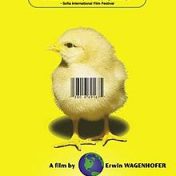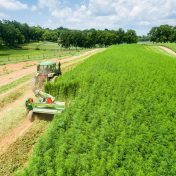Growing up, I’ve always viewed the water crisis as something I shouldn’t concern myself over because it wasn’t an immediate problem in my life (as terrible and self-centered as that sounds). I have to admit that it really wasn’t until this group action project that I saw the detrimental impact that losing out on one crucial necessity for survival had… Read more »
I’ve always had a political and economic emphasis when it comes to how I analyze course material. With that being said, I knew that addressing trade for my group project would be useful in examining how political economy relates to food and the environment. As a result, I was excited to find a group of peers with a similar sort… Read more »
Up until this quarter, I had never taken a class that forced students to step outside of the classroom to complete an action project instead of simply writing about it. Many times, we are tasked with finding possible solutions that addresses one of the many problems that are occurring within our community. Yet, the reality is that implementing these solutions… Read more »
Water is literally the essence of life. It is the most important substance on earth for us humans as our body needs the nourishment to function. Despite such importance, we rarely pay attention to it until our body starts to show signs of dehydration—the feeling of thirst. The intake of water is essential on a regular basis, but we usually take… Read more »
(see https://www.washingtonpost.com/news/wonk/wp/2016/05/19/the-apple-industrys-strange-savior/ for image cred) For our project, we chose the topic of food waste, and in particular apples in the Seattle area. We made a children’s game inspired by Candyland that showed the (linear) path an apple makes as it is grown, shipped, stocked, and eventually eaten by consumers. We called it “Wasteland.” It is mostly geared toward waste on… Read more »
Group projects are typically a source of anxiety and apathy in the minds of college students. However, the idea that our group project had the potential to make an impact on the students at UW, the community in Seattle, and discuss the political implications of a global problem was enough. We faced a series of roadblocks, yet we were able… Read more »
Water, one of the most common element on earth, and cover 70.8% of the earth’s surface is an important resource for the survival of all lives, including humans, and it is also the most important component of living organisms. In other words, we as human cannot leave without water. With that amount, water should not be a problem to every… Read more »
For our final project, my group chose to focus on soil. Initially, we had planned to organize an after-school event for local elementary students. Quickly we discovered that the process to clear such an event with the district would be lengthy and likely too bureaucratically complex for us to succeed in such a short period of time. Furthermore, the soils… Read more »
Our group was on non-food agriculture, focusing on industrial hemp. Of course, the obvious choice for us could’ve been on cannabis, as it has become a larger part of the economy in Washington State and beyond. However, we decided to focus on the legalization of industrial hemp on a federal level for various reasons. Initially, we planned on having educational… Read more »
This action project was a learning experience for me and for my group. We began with the intention of affecting direct policy change through legislation aimed at legalizing hemp nationwide, but soon had to redirect our efforts after our first avenue ended up being impractical during the time period we were allocated. We chose hemp legalization as our issue of… Read more »


